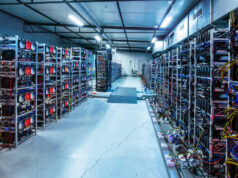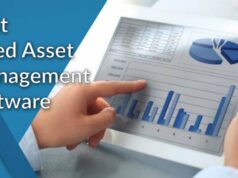What is an ERP (Enterprise Resource Planning) System?
What is erp and how does it work? The Efficiency and profitability are two of the most important factors in corporate success. what is erp and how does it work You want to run your business’s necessary and profit-generating processes as effectively as possible. However, you must optimize your profits while maintaining your overhead expenditures to a minimum. A company’s business procedure management approach must be scaled to include more sophisticated, automated visibility and measurement of operations in order to achieve this degree of efficiency and profitability.
This approach contributes to better decision-making in general. what is erp and how does it work An ERP system provides software for managing business procedures, allowing a corporation to achieve this degree of managerial productivity.
What does ERP Stand for?
what is erp and how does it work the ERP stands for Enterprise Resource Planning. ERP stands for enterprise resource planning in the business world. It’s a shared database strategy for managing a company’s many moving parts. This method allows you to gain a broader view. ERP allows you to get a better picture of what’s going on in your business and handle all of the separate reports generated by various business operations in one place.
These processes include things like:
- Sales
- Human resources
- Warehouse/inventory
- Customer relationship management (CRM)
- Purchase/finances
- e-commerce
ERP Practices in the Past
ERP Practices in the Past
Even if it didn’t have that term, businesses have always attempted to employ enterprise resource management. Companies have long struggled to strike a balance between all of their many practises while also sacrificing resources elsewhere. For a long time, this meant that businesses had to recruit additional personnel to oversee each area. International businesses were forced to rely on outsourced labor from other countries, with no way of checking in.
The economic order quantity (EOQ) model, a paper-based scheduling system, was the first instance of ERP in manufacturing. Material resource planning (MRP) tools, which were developed in the late 1960s and later evolved into manufacturing resource planning (MRP II) tools, took their place. The advent of computer software integration with regular corporate operations ushered in modern ERP techniques in the 1990s. The word was coined by the Gartner Group to describe new digital tools that help manufacturers manage their supply chains, regulate inventories, automate accounting, and much more. ERP is now used in a wide range of industries, not simply manufacturing. ERP software has been accessible on cloud-hosted platforms since the early 2000s.
What Is The Purpose Of An ERP?
The goal of an ERP system is to increase efficiency (and thus profitability) by better allocating firm resources, whether they are time, money, people, or something else. You can grow your firm more efficiently and appropriately if you can lower the number of resources used without sacrificing quality or performance.what is ERP and how does it work? The ERP software brings together a variety of information and KPIs from many departments into one place.
This makes getting a complete picture of what’s going on and how resources are being spent much easier. From this vantage point, you can gain vital insights into how processes can be changed or resources better invested to produce higher growth from this vantage point of the firm.
It is much easier to invest resources in techniques that underperform without an ERP system and thorough planning on how resources should be allocated to maximise growth and the bottom line. A good ERP software platform, on the other hand, enables a company to reallocate resources away from underperforming approaches and toward those that are yielding positive results. Because everything is in one place, an ERP system makes it easier to access the information or reports you need. You don’t have to sift through spreadsheets or multiple business programmes to find the information you need; it’s all right there on the ERP interface.
What Are The Advantages Of Having An ERP System?
The apparent response to this issue is that, as previously said, an ERP system improves efficiency and profitability. When we delve a little more into what is erp and how does it work the ERP Software accomplishes these broad objectives, we discover a slew of extra benefits to this resource management plan needs.
An ERP system can:
- Reduce your overhead costs by folding a number of business tools and applications into one system
- Cause individual operations/departments (warehouse, accounting, HR, etc.) to work faster
- Automate specific processes that would otherwise require manpower to complete
- Improve business data analytics for better, more accurate, and actionable insights
- Positively impact customer relationships by being an overall faster, more efficient company to work with
- Be customized to focus on the aspects of your business that are most aligned with your current goals and needs.
What Are The Advantages And Disadvantages Of ERP Software?
Depending on the bundle you buy and the vendor, what is EP and how does it work? ERP software can be very different. However, when researching ERP companies, there are a few crucial factors to keep in mind. At the very least, your ERP software should include the following modules:
Accounting:
Keep track of all of your financial information in one place, including purchase orders, costs, sales reports, and payroll. This makes it easier to keep track of your cash flow and revenue, as well as figure out where money could be better spent or how to lower your burn rate.
Inventory and warehousing:
If your company has inventory or warehouse systems, your ERP software should be able to link these so you can better track and manage your inventory. This allows you to check how much inventory is available, what inventory is being delivered, what inventory is coming in from which vendors, and more. A business can avoid running out of goods, mismanaging a delivery, and other problems by carefully monitoring and tracking these activities. ERP system characteristics Your ERP software must be able to link inventory and warehousing processes if your company has them.
It’s critical for a company to be able to distinguish between its eCommerce and physical retail sales. After all, the strategies you employ to increase online sales are distinct from those employed in your physical locations. A good ERP system will make your current web offerings better by giving customers more ways to buy.
As vital as it is for a company to make consumers happy and retain them, it is also critical for staff to be happy. All personnel management procedures, including payroll expenses, recruitment, performance reviews, attendance, scheduling, and more, are contained in the HR module of your ERP system. It’s a one-stop-shop for all staff communication and management needs.
CRM and marketing: Your brand-customer interactions will ultimately lead to repeat business.
It’s critical to understand how well your marketing methods are engaging and re-engaging clients, whether they’re email marketing campaigns, social media offers, surveys, follow-up phone calls, or something else entirely.
The CRM feature will make it easier to see what’s working and what isn’t, as well as how marketing contributes to increased income.
Project Management:
Project management is the final must-have function of your ERP software since it helps you interact effectively throughout your organisation to plan and execute projects internally. This helps to keep everyone in the company on the same page and aware of the most recent business goals and objectives.
Conclusion
An ERP system may be the ideal answer if your company’s growth has slowed or you believe your resources aren’t being used as effectively as they could be. Because this software combines a variety of distinct operations into one system, you’ll have a greater understanding of how your firm is operating. Because you don’t have to collect reports from each operation separately, you save a lot of time and avoid a lot of difficulties. You’ll rapidly notice a decrease in overhead expenditures and an increase in your bottom line.










